What is money?
It is neither the paper nor the coin that it is stamped upon. Those are only the symbols of its portable manifestations.
Money is real, but not real like a glass container, a glass of water, a waterfall, a glass ceiling, an Alaskan seal.
It is not real like an automobile is real.
It is not real like concrete is real.
It is real to us who use it and need it, but what kind of real is it?
It is not real like the bed we sleep in.
It is not real like the leaky roof over our heads.
It is not real like our heads.
It is not real like the leak.
It is not real like the drops of water leaking.
It is not real like wheat in the field.
But it is real.
Without money, the wheat in the field will dry up and the people will starve. They have the field, they have the wheat, they are hungry, but they will starve without money while the amber waves wave upon the fruited plain.
What then is money, this thing that can cause the hungry to die of starvation in the presence of food in abundance?
Quite simply, money, in all of its forms is a system for organizing humans in a human society.
It is for this reason that the beasts of the field will not die of starvation in the presence of abundant food. They will eat the food because they are hungry and it is there.
An American in that same field, a field of apples, an apple orchard let's say, will see the apples and reach into his pockets and say, "I wonder how much the owner of this orchard will charge for one of those juicy apples? I only have three dollars. I hope that it is enough."
If he has enough money, then he will eat. If he has not enough, then he will starve unless he can negotiate some other arrangement with the owner, or unless he is willing to steal. But stealing makes him a criminal--though stealing only to quell his hunger and avoid death by starvation, the thief will be outside of the law, a criminal, an outlaw. There are humans who would be willing to die rather than to break the law.
Money is as real to them as their hunger and the apples which will quell that hunger. The law is real to them in the same way. Society is real to them in the same way.
In reality, neither money, nor the law, nor society are real in the same way that an apple is, or that hunger is.
But we are not beasts of the field, we are humans in a human society, and so we must behave in a civilized manner. We must behave in an ordered manner. We must be, therefore, ordered or organized. But in what manner and by what organizing principle?
The simplest and most primitive organizing principles ("primitive" meaning that these principles were used even by the most primitive of human societies and to some extent are still in use by all societies today) are age and might.
Humans are born into families, and so the first organizing principle is, of course, age. It makes sense that parents hold a higher rank than children. Mothers and fathers tell the children what to do. Older children, it follows, often tell the younger children what to do.
Related to age is the organizing principle of might--the law of the jungle, so to speak. The stonger tell the weaker what to do. The big fish boss around the little fish, and so on.
Note also that parents start off bigger than children (until years later when the children attain adult size and weight). Thus, the principle of might is perhaps a subset of the principle of age.
There is also the principle of primacy, which may also be a subset of the principle of age. Primacy means, in layman's terms, whoever gets there first is in charge. Thus, if I possess the land before you, and you arrive and meet me there, you are expected to obey my laws. The land is my propert because I was there first; I am the lord of the land by virtue of beng first and you must obey my will.
Again, note that in the family, by the very nature of what it means to give birth, the parents always have primacy over the children they give birth to. The parents were there first, and so their will must be obeyed.
Of course, primacy can be defeated by might. If you possess the land before me, but you are stronger, you can very well wrest it away from me and become its lord. Now you are the boss, or the king, until a mightier king comes along and wrests power away from you.
But primacy, age, and might work best in smaller societies, tribes, or in families.
How do we organize a society of tens of thousands? Hundreds of thousands? Hundreds of millions?
We do it with a concept called "money." The rule works like this: whoever has the most money is not a king or a boss exactly, but a part of a kind of power elite, whose job it is to oversee and direct the movement of the society; those who have the least money are not slaves, slavs, or peasants exactly, but they are relegated to doing the bidding of those at the top in order to be deserving of their daily bread.
Before we go further, let's talk about why it is to our advantage as humans to have the human society organized in the first place. Why not just live and let live? Why not just do what we want? Why not just live as we want?
Let us go back to the example of the apple orchard, and keep in mind that this is a metaphor. Indeed, I know nothing about the cultivation of apples.
If a group of, say, 200 hungry human animals descend upon an apple orchard, they will by their very nature devour all of the apples--because it is in their nature to eat when they are hungry, and perhaps to eat a little bit more than their hunger requires.
Now the apples are all gone and the humans move on. Who will plant more seeds? Who will tend to the young plants? Who, in short, will farm the land, not just with apples, but with grain, vegetables, fruit, and livestock? The answer is no one, and why should they? Farming is hard work. It is much easier to just eat the fruit from the tree and then move on.
Now, insert an organizing principle, like a king (the principle of might). The king establishes law. Only a certain amount of apples can be picked. Only certain people can pick them and only at a certain time of year. Certain favors have to be paid in exchange for the harvesting of the apples. Certain people will be paid certain favors for tending to and harvesting the apples, and so on. Furthermore, anyone who breaks these laws will have to deal with the might of the king. One cannot simply see an apple and reach for it. One must ask, "Am I breaking the law when I reach for this apple? In what way might I entitle myself to a bite of this apple?"
Thoughts such as that benefit the apples, but also the human society, for the apples are now likely to survive the lazy, careless appetites of the hunter-gatherer society and, thanks to the laws of the king, be there for generations to come.
Now substitute money for the might of a king in the example of the apple orchard.
In this case, the apples in the orchard are sold for a price. They cannot simply be plucked from the tree by anyone who desires to eat them.
One might say that the apples are cultivated so that humans in the society can eat them; or one might more accurately say that the apples are cultivated so that the owner of the orchard can earn money through the sale of them to the humans in the society who desire to eat them.
The orchard is not ravaged by careless hunter-gatherer behavior because in order to eat the apples, the hungry human must pay for them with money.
In order for the human to earn money to purchase the apple, he must be gainfully employed in an endeavor (ideally) that benefits the society. The more important to the society his labor is perceived to be, the more money he shall earn from said labor. And the more money he earns, the more apples (as well as other things) he is able to purchase.
The more money he earns, the more of everything he is able to purchase, for it follows that in a society organized around money nearly everything (and the best quality of everything) can be purchased; apples, apple orchards, automobiles, real estate, health care, education, safety and protection, beauty, legal representation, love and affection--though perhaps not the genuine kind of love and affection, but then again, maybe so, for indeed how difficult is it in a society organized by the principle of money to love someone who is handsome, well educated, well mannered, healthy, and has the best of everything that money can buy?
Well then, in a society organized by the principle of money, should we not all aspire to earn the most money?
Yes, we should, but the end results will be that a few will end up at the top, a large number will end up in the middle, and the largest number will end up at the bottom--and this is as the way it should be.
Let us go back to the apple orchard example again, for we not only like to eat apples as humans but we can earn some money working at the orchard.
First, the apple orchard is owned by someone--and in order to own it, the owner has purchased it at a price.
It is also possible that the owner has inherited the orchard, but that scenario works out to be the same as the first--for then it would be a parent who purchased the orchard and then passed it on to an heir, who is the present owner.
The apple orchard employs many laborers, who toil at the planting and the harvesting--these laborers, so that the point is not missed, are paid for their labor.
The owner, of course, is going to earn the most from the cultivation of apples for what many (cynically) perceive to be the least amount of actual labor.
The manager, or top employee, or ceo of the orchard is going to earn the most among the paid employees. He/she manages the apple orchard and is highly paid to ensure that everything goes well.
The remainder of the employees in this example--and there are many classes of employees from accountants and attorneys down to the lowliest apple picker and seed planter--will reflect a range of pay grades from quite a bit to very little (minimum wage earners).
But why can we not all earn a ceo's salary? Why can we all not be rich?
Because if we were all rich, then money would be nullified as an organizing principle. Since we all earned the same, and we were all rich, there would be no way to ensure that there were enough of us available to do the dirty, labor intensive planting and harvesting, or the labor intensive and often depressing sanitation and cleaning and mopping and raking and composting jobs. In short, apple production would come to a halt after a few days and the orchard would fall into disrepair.
The Egyptians built magnificent structures that we still marvel at today, and so did the Greeks and the Romans, as well did the Aztecs, Incas, and Mayans. Their organizing principle was might--the king ordered his subjects to build and they obeyed. But what if every Egytian were a pharoah? Not one single pyramid woudl have been built, and I think you understand why. There must be might to organize the labor of the society to build magnificent structures. At the very top is the king, followed by his well paid master builders and architects, followed by a descending chorus line of laborers all the way down to the lowliest slave.
Humans are not ants. They have no instinct to work together for long periods of time without incentives such as danger from outsiders (all will fight to defend the common territory, perhaps), danger from nature (all will fight the fire or rescue the children from a flood) or strong desire for some common short term goal (all will fight together to bring down the big antelope and eat its meat). But the building of a pyramid--or some other such important but long term goal--requires an organizing principle.
The elder (age) can say, "We will erect an alter to God--and we will work on it for ten years," and his followers (an extended family group) will obey his will.
The king (might) can say, "We will erect a temple in honor of Zeus--it will take a hundred years to build and we will build it," and his subjects will obey his will.
The billionaire industrialist (money) can say, "We will plant a hundred thousand apple orchards across ten states. It will feed millions," and his company, his salaried employees will obey his will.
But the poor live in such depressing conditions. What can we do about it?
That's a tricky question, and there are two ways to answer it, considering what we have discussed about money as an organizing principle.
First, for the individual poor person--especially one who lives in the United States of America--there are educational opportunities that can be seized. With the help of the government and a few good motivational and inspiring teachers, an individual who is poor can better his/her circumstances. The poor might also benefit from this land of opportunity by opening up a successful business. The poor may also benefit by winning the lottery. It happens. There are success stories like this every day.
But what happens to the individual poor person who pulls himself up (so to speak) by the bootstraps is not the issue. Do not be deceived by such success stories for they are the exception and not the rule. The way our system organized by money works is that we NEED the poor to REMAIN poor.
Remember, we cannot build a magnificent structure if everyone becomes a ceo. We cannot all be equal in wealth--in fact, such a notion is unrealistic and childish in its conception.
And do not be deceived by those who believe that we can best help the poor in a system organized by money by giving more money and benefits to the people and businesses at the top so that it will "trickle" down to the poor. Money does not trickle down; but revolution and misery do trickle up.
Money does not trickle down in a system organized by money just as power does not trickle down in a system organized by might--if the king becomes stronger, does that strength trickle down to his lowliest slave? No. Money is not bread crumbs--money is an organizing principle; the more you give to me at the top, the more firmly on top I become, that's all.
Second, for the poor as a group, it is important that we as a nation make sure that the minimum wage is actually a wage that the poor can live on. There are people with the skill of numbers crunching who can advise our leaders on a minimum wage that will allow the poor to live decent and dignified lives. We at the top and in the middle OWE it to the poor to ensure that they live decent and dignified lives, for their poverty allows us the gift of our middle class and upper class lives.
Why do we OWE it to them?
First, in a society organized by money, there is only so much money to go around; thus, if we have it all, or most of it, then we have it because the poor DON'T have it. Despite the metaphor of the apple orchard, money does not grow on trees.
Second, their group is several hundred times larger than ours. In short, they simply outnumber us. If they used the organizing principle of might, they could simply take our wealth from us. What keeps them in their place in America are the various traps we have to keep the poor people poor: the fear of incarceration (though in truth we do not have prisons enough to hold all of the poor if they rose up); the rule of law (which they obey, despite the fact that it is weighted against them); sub-standard schools in their neighborhoods; alcohol and drugs (no explanation necessary); religion (it empowers as much as it restrains--love your neighbor as yourself has worked wonders to keep them in line--though their wealthier neighbors don't always seem to love them back); lack of leadership; lack of representation in our representative democracy (ever heard of a lobbyist for the poor?); TV (bread and circuses worked in Rome, why not here?); and the American Dream (because the poor believe in the American Dream, they, thank god, do not revolt--because they have a hope, despite everything they see around them, that one day things will get better, they continue to support a system of which they live on the bottom rung--instead of becoming angry and hateful when they see the conspicuous consumption of the wealthy celebrities on TV, they dream on, praying that one day, it will be they who live in the big mansion, that one day it will be they who drive the expensive automobile--because of the American Dream, those who have the least chance of achieving it are the ones who support it the most tenaciously--there is no reason to overthow a system that might benefit you . . . one day).
Third, we owe the poor because their sons and daughters swell the ranks of our military, because while serving in the military to the middle and upper classes is a patriotic duty or something to do instead of college--to the poor it is one of the surest ways out of the cycle of poverty. You want homeland security? Make sure the children of that welfare mother, despite what you may think about her, have food to eat and proper healthcare beause one day her son or daughter is going to take a bullet for you.
Fourth, we owe the poor because someone has to do the jobs that we will not do. You know those jobs. They don't pay much, but if nobody did them our lives would be miserable: cleaners of various unmentionably foul things, removers of vile things most of us would rather not even know existed, things that sicken the stomach, things that smell bad, distasteful things.
Finally, we owe the poor because they are the meek in a land of exhalted hubris, and our own scritpture warns that one day they will inherit the earth. We shudder to think what that might mean. Let that day be far off from this present one, lord.
Hopefully, they will not do away with our system so beautifully organized by the principle of money, capitalism.
It is a good system, capitalism, the best the world has ever seen, especially the way we do it here in America.
Socialism is really capitalism with the government forcing by law those at the top to be dutiful and considerate of their poorer brethren, so that works too.
Communism is a joke invented by a childish, idealistic mind--people are not compassionate enough or ambitious enough by nature for communism to work.
Monarchies? Well, it seems their day has passed, but be forewarned if our system governed by money fails, might will rule the day and we will likely see the return of wardlords and kings. Might is the easiest organizing system to put into place after chaos. Might precedes and follows all revolutions.
The only way to keep the warlord and the kings away? Keep the money flowing.
To be continued--
The poor and Money
The Wealthy Who Go Slumming for Love
The Not So Wealthy who Make Deals With The Devil to Keep Their Jobs
Diogenes and Other Rich Beggars
The Linberg Law: The American Dream and Why Conspicuously Wealthy Americans Don't Fear Kidnapping
The Democratic Government and Money
Somes Gotta Win and Somes Gotta lose
Why They Lend Money
(I'm tired. I'll proofread it tomorrow)
A blog for lovers of the printed word (novels, short stories, poems--the Ing so to speak), popular film, politics, and casinos (the Bling).
Monday, October 6, 2008
Dear Mr. Vignola
Mr. Vignola was a great man in many respects and an especially wonderful and inspiring educator. I am fortunate to have had him for sixth grade way back in 1976-1977.
But here's the thing . . . one day, in a joke, Mr. Vignola told us that there will never come a day when gas sells for more per gallon than milk.
We were doing an assignment on household budgets, if I recall, and the class dunce (who obviously had not done his homework again) had offered up an incorrect budget plan, one that showed the hypothetical family spending more to purchase a gallon of gas than a gallon of milk.
Well, we silly sixth graders had a good tittering laugh at the dunce, and then Mr. V, as we used to call him, added the humorous coda: "One thing you can be certain of, milk will always cost more than gas."
Oh, if it were only true.
Thanks,
Preston
But here's the thing . . . one day, in a joke, Mr. Vignola told us that there will never come a day when gas sells for more per gallon than milk.
We were doing an assignment on household budgets, if I recall, and the class dunce (who obviously had not done his homework again) had offered up an incorrect budget plan, one that showed the hypothetical family spending more to purchase a gallon of gas than a gallon of milk.
Well, we silly sixth graders had a good tittering laugh at the dunce, and then Mr. V, as we used to call him, added the humorous coda: "One thing you can be certain of, milk will always cost more than gas."
Oh, if it were only true.
Thanks,
Preston
Subscribe to:
Posts (Atom)
Lipshitz 6

Reading T Cooper for Christmas
Click Here to Purchase Lipshitz 6
Punk Blood

Jay Marvin
Click Here to Purchase Punk Blood
Breath, Eyes, Memory

Anonymous Rex
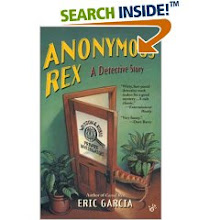
Reading Eric Garcia for Christmas
Click Here to Purchase Anonymous Rex
Vinegar Hill

Reading A. Manette Ansay for Christmas
Click Here to Purchase Vinegar Hill
Nicotine Dreams

Reading Katie Cunningham for Christmas
Click Here to Purchase Nicotine Dreams
Junot Diaz
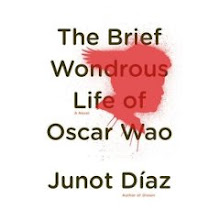
Pulitzer Prize Winner!!!
Click Here to Purchase The Brief Wondrous Life of Oscar Wao
Edwige Danticat

New Year's Reading
Click Here to Purchase Brother I"m Dying
Greed
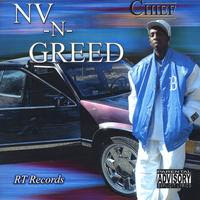
This Brother Is Scary Good
Sweet Music
One More Chance
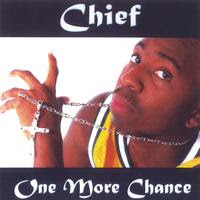
The genius Is At It Again/The Rapper CHIEF aka Sherwin Allen
Sandrine's Letter
Check out Sandrine's Letter To Tomorrow. You will like it, I insist.
Sandrine's Link
Cool Sites
- Akashic Books
- All or Nothing (My Other Blog)
- Asili The Journal
- Best Gamblling News Site
- Black Star Review
- Book Remarks
- Booktour.com
- Carolina Wren Press
- Click Here for Some Pretty Good Writing Contests
- Dedra Johnson
- Enrico Theoc
- Felicia Luna Lemus
- Florida Book Review
- Foreword Magazine
- Gambling Is Linked to Suicide
- Gambling Is Not Linked to Suicide
- Gaming Law Review
- Gene Durnell's The Thinking Journalist
- Gene Durnell's The Thinking Journalist
- Geoffrey Philp's Blog
- Get Chief's CDs on CD Baby
- Getting Past Gambling
- Gonzalo Barr's Blog
- Good Reads
- Hallema's Homepage
- Help With Gambling Addiction
- Jeremy Shipp's Website
- John Dufresne's Blog
- Leonard Nash Homepage
- Links to Seminole Casinos in Florida
- Martha Frankel's Homepage
- Michael A. Gonzales
- Miss Snark/ An Agent Gives Great Publishing Advice
- More Addiction Help
- No Gambling.com
- Pat MacEnulty
- ScrewIowa.com
- St. Louis Rams, The Greatest Show on Turf
- Suicide reference library
- T Cooper
- University of Florida
- Vicki Hendricks
- Walter Jacobs's Blog
- Writers Who Read
- Writing with Celia

All or Nothing

Editorial Reviews of All or Nothing
New York Times--". . . a cartographer of autodegradation . . . Like Dostoyevsky, Allen colorfully evokes the gambling milieu — the chained (mis)fortunes of the players, their vanities and grotesqueries, their quasi-philosophical ruminations on chance. Like Burroughs, he is a dispassionate chronicler of the addict’s daily ritual, neither glorifying nor vilifying the matter at hand."
Florida Book Review--". . . Allen examines the flaming abyss compulsive gambling burns in its victims’ guts, self-esteem and bank accounts, the desperate, myopic immediacy it incites, the self-destructive need it feeds on, the families and relationships it destroys. For with gamblers, it really is all or nothing. Usually nothing. Take it from a reviewer who’s been there. Allen is right on the money here."
Foreword Magazine--"Not shame, not assault, not even murder is enough reason to stop. Allen’s second novel, All or Nothing, is funny, relentless, haunting, and highly readable. P’s inner dialogues illuminate the grubby tragedy of addiction, and his actions speak for the train wreck that is gambling."
Library Journal--"Told without preaching or moralizing, the facts of P's life express volumes on the destructive power of gambling. This is strongly recommended and deserves a wide audience; an excellent choice for book discussion groups."—Lisa Rohrbaugh, East Palestine Memorial P.L., OH
LEXIS-NEXIS--"By day, P drives a school bus in Miami. But his vocation? He's a gambler who craves every opportunity to steal a few hours to play the numbers, the lottery, at the Indian casinos. Allen has a narrative voice as compelling as feeding the slots is to P." Betsy Willeford is a Miami-based freelance book reviewer. November 4, 2007
Publisher’s Weekly--"Allen’s dark and insightful novel depicts narrator P’s sobering descent into his gambling addiction . . . The well-written novel takes the reader on a chaotic ride as P chases, finds and loses fast, easy money. Allen (Churchboys and Other Sinners) reveals how addiction annihilates its victims and shows that winning isn’t always so different from losing."
Kirkus Review--"We gamble to gamble. We play to play. We don't play to win." Right there, P, desperado narrator of this crash-'n'-burn novella, sums up the madness. A black man in Miami, P has graduated from youthful nonchalance (a '79 Buick Electra 225) to married-with-a-kid pseudo-stability, driving a school bus in the shadow of the Biltmore. He lives large enough to afford two wide-screen TVs, but the wife wants more. Or so he rationalizes, as he hits the open-all-night Indian casinos, "controlling" his jones with a daily ATM maximum of $1,000. Low enough to rob the family piggy bank for slot-machine fodder, he sinks yet further, praying that his allergic 11-year-old eat forbidden strawberries—which will send him into a coma, from which he'll emerge with the winning formula for Cash 3 (the kid's supposedly psychic when he's sick). All street smarts and inside skinny, the book gives readers a contact high that zooms to full rush when P scores $160,000 on one lucky machine ("God is the God of Ping-ping," he exults, as the coins flood out). The loot's enough to make the small-timer turn pro, as he heads, flush, to Vegas to cash in. But in Sin City, karmic payback awaits. Swanky hookers, underworld "professors" deeply schooled in sure-fire systems to beat the house, manic trips to the CashMyCheck store for funds to fuel the ferocious need—Allen's brilliant at conveying the hothouse atmosphere of hell-bent gaming. Fun time in the Inferno.
Florida Book Review--". . . Allen examines the flaming abyss compulsive gambling burns in its victims’ guts, self-esteem and bank accounts, the desperate, myopic immediacy it incites, the self-destructive need it feeds on, the families and relationships it destroys. For with gamblers, it really is all or nothing. Usually nothing. Take it from a reviewer who’s been there. Allen is right on the money here."
Foreword Magazine--"Not shame, not assault, not even murder is enough reason to stop. Allen’s second novel, All or Nothing, is funny, relentless, haunting, and highly readable. P’s inner dialogues illuminate the grubby tragedy of addiction, and his actions speak for the train wreck that is gambling."
Library Journal--"Told without preaching or moralizing, the facts of P's life express volumes on the destructive power of gambling. This is strongly recommended and deserves a wide audience; an excellent choice for book discussion groups."—Lisa Rohrbaugh, East Palestine Memorial P.L., OH
LEXIS-NEXIS--"By day, P drives a school bus in Miami. But his vocation? He's a gambler who craves every opportunity to steal a few hours to play the numbers, the lottery, at the Indian casinos. Allen has a narrative voice as compelling as feeding the slots is to P." Betsy Willeford is a Miami-based freelance book reviewer. November 4, 2007
Publisher’s Weekly--"Allen’s dark and insightful novel depicts narrator P’s sobering descent into his gambling addiction . . . The well-written novel takes the reader on a chaotic ride as P chases, finds and loses fast, easy money. Allen (Churchboys and Other Sinners) reveals how addiction annihilates its victims and shows that winning isn’t always so different from losing."
Kirkus Review--"We gamble to gamble. We play to play. We don't play to win." Right there, P, desperado narrator of this crash-'n'-burn novella, sums up the madness. A black man in Miami, P has graduated from youthful nonchalance (a '79 Buick Electra 225) to married-with-a-kid pseudo-stability, driving a school bus in the shadow of the Biltmore. He lives large enough to afford two wide-screen TVs, but the wife wants more. Or so he rationalizes, as he hits the open-all-night Indian casinos, "controlling" his jones with a daily ATM maximum of $1,000. Low enough to rob the family piggy bank for slot-machine fodder, he sinks yet further, praying that his allergic 11-year-old eat forbidden strawberries—which will send him into a coma, from which he'll emerge with the winning formula for Cash 3 (the kid's supposedly psychic when he's sick). All street smarts and inside skinny, the book gives readers a contact high that zooms to full rush when P scores $160,000 on one lucky machine ("God is the God of Ping-ping," he exults, as the coins flood out). The loot's enough to make the small-timer turn pro, as he heads, flush, to Vegas to cash in. But in Sin City, karmic payback awaits. Swanky hookers, underworld "professors" deeply schooled in sure-fire systems to beat the house, manic trips to the CashMyCheck store for funds to fuel the ferocious need—Allen's brilliant at conveying the hothouse atmosphere of hell-bent gaming. Fun time in the Inferno.
At Books and Books
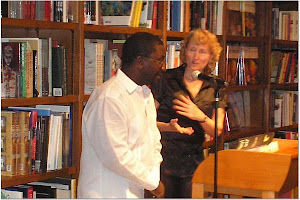
Me And Vicki at Our Reading
Bio
Preston L. Allen is the recipient of a State of Florida Individual Artist Fellowship in Literature and the Sonja H. Stone Prize in Fiction for his short story collection Churchboys and Other Sinners (Carolina Wren Press 2003). His works have appeared in numerous publications including The Seattle Review, The Crab Orchard Review, Asili, Drum Voices, and Gulfstream Magazine; and he has been anthologized in Here We Are: An Anthology of South Florida Writers, Brown Sugar: A Collection of Erotic Black Fiction, Miami Noir, and the forthcoming Las Vegas Noir. His fourth novel, All Or Nothing, chronicles the life of a small-time gambler who finally hits it big. Preston Allen teaches English and Creative Writing in Miami, Florida.